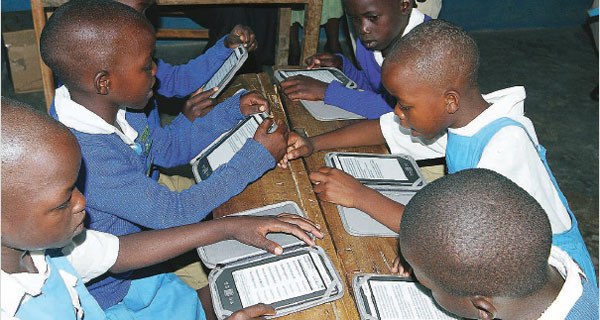×
The Standard e-Paper
Stay Informed, Even Offline
 |
| Pupils of Kirembe Primary School in Kisumu County in a class with the e-reading tablets received from USAID in partnership with the Ministry of Education. The school received 30 devices. [PHOTO: TITUS MUNALA/STANDARD] |
By WILLIS OKETCH
TANA; KENYA: Over five months after concluding its public inquest the Commission of Inquiry into the Tana Delta tribal violence between ethnic Pokomo and Orma, is yet to publish it findings or hand a report to the President.